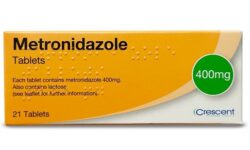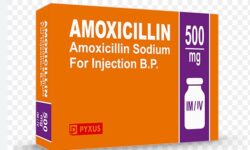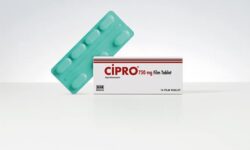Benefits Of Collagen
Collagen has been gaining significant attention in recent years, becoming a buzzword in the beauty and wellness industries. But what exactly is collagen, and why is it so crucial for our overall health? In this blog post, we will explore the ins and outs of collagen, its impact on joint health, and the various sources from which we can obtain this essential protein. Whether you’re looking to enhance your skin’s elasticity, support your connective tissues, or simply understand the importance of collagen, this comprehensive guide will provide all the answers you need.
What Is Collagen?
Collagen is a protein that is naturally present in our bodies and is crucial for maintaining the health and structure of our skin, bones, muscles, tendons, and ligaments. It is often referred to as the “glue” that holds our body together. Collagen makes up about 30% of the body’s total protein content, making it one of the most abundant proteins in the body. It is primarily found in the extracellular matrix of connective tissues, providing strength and elasticity to various parts of our body.
The Benefits of Collagen
Collagen offers numerous benefits for our overall health and well-being. One of the main advantages of collagen is its role in promoting youthful and vibrant skin. As we age, the production of collagen in our body decreases, leading to the appearance of wrinkles, fine lines, and sagging skin. By incorporating collagen into our diet or using collagen supplements, we can support the growth and regeneration of skin cells, thereby improving the elasticity and hydration of our skin.
Sources of Collagen
While our bodies naturally produce collagen, we can also obtain it from various food sources and supplements. Foods rich in collagen include bone broth, chicken, fish, egg whites, and citrus fruits. Additionally, collagen peptides and collagen supplements are widely available in the market today. These supplements are derived from animal sources like bovine or marine collagen and can be consumed in the form of powders, capsules, or liquids. Incorporating these sources of collagen into our daily routine can help to replenish the collagen levels in our body and support our overall health.
| Type of Collagen | Main Sources |
|---|---|
| Type I | Skin, tendons, bones, and ligaments |
| Type II | Cartilage |
| Type III | Blood vessels |
| Type IV | Kidneys |
The table above illustrates the different types of collagen and their main sources within the body. Each type plays a specific role in maintaining the health of different tissues and organs.
Collagen And Joint Health
Collagen is a protein that naturally occurs in the body and plays a crucial role in maintaining joint health. It is a major component of connective tissues such as cartilage, tendons, and ligaments, which are vital for maintaining proper joint function.
The benefits of collagen for joint health are:
Sources of Collagen:
Collagen can be sourced from various natural sources, including both animal and plant-based options. The most common sources of collagen include:
Incorporating collagen into your diet:
Collagen supplements are widely available in various forms, such as capsules, powders, and liquids, making it convenient to incorporate into your daily routine. Additionally, you can also consume collagen-rich foods to boost your intake. Adding bone broth to soups, stews, or using collagen protein powder in smoothies are excellent ways to increase your collagen consumption.
| Animal-based Sources: | Plant-based Sources: |
|---|---|
| Beef | Vitamin C-rich fruits |
| Chicken | Berries |
| Fish | Leafy greens |
| Bone broth | Beans and legumes |
By incorporating collagen into your diet or taking supplements, you can support joint health, reduce inflammation, and promote cartilage regeneration. However, it is important to consult with a healthcare professional before starting any new supplements or making significant dietary changes.
Sources Of Collagen
Collagen is a protein that is found in abundance in our bodies. It plays a crucial role in maintaining the strength and elasticity of our connective tissues, such as skin, tendons, and cartilage. As we age, the production of collagen in our bodies decreases, leading to various signs of aging, such as wrinkles and joint pain. To counter these effects, many people turn to external sources of collagen to supplement their natural production. Let’s explore some of the best sources of collagen that can help you maintain youthful skin and strong joints.
1. Bone Broth: Bone broth is made by simmering the bones and connective tissues of animals, such as chicken, beef, or fish, for an extended period. This process extracts collagen and other beneficial compounds, resulting in a nutritious and collagen-rich broth. Consuming bone broth regularly can provide your body with essential amino acids and promote collagen synthesis.
2. Fish: Fish, particularly cold-water fish like salmon and tuna, are excellent sources of collagen. They have high levels of collagen-rich skin and bones. Including fish in your diet can not only provide you with collagen but also omega-3 fatty acids, which help reduce inflammation and enhance overall skin health.
3. Supplements: Collagen supplements are becoming increasingly popular due to their convenience and efficacy. These supplements come in various forms, such as capsules, powders, and gummies, and are derived from animal or marine sources. Taking collagen supplements can boost your body’s collagen levels and support healthy skin, hair, and joint function.
4. Bone-In Meat: Opting for bone-in meats, such as chicken thighs or drumsticks, can be an excellent way to consume collagen naturally. The bones and tissues attached to the meat provide a good amount of collagen when cooked. Including bone-in meat in your meals not only adds flavor but also provides you with dietary collagen.
| Source | Type of Collagen |
|---|---|
| Bone Broth | Type I, II, and III |
| Fish | Type I |
| Supplements | Varying types |
| Bone-In Meat | Type I and III |
| Gelatin | Type I |
In conclusion, incorporating collagen-rich sources into your diet can have numerous benefits for your skin, hair, and joint health. Whether it’s through bone broth, fish, supplements, bone-in meat, or even gelatin, these sources provide essential amino acids and stimulate collagen production in your body. Remember to consult with a healthcare professional before starting any new supplements or making significant dietary changes to ensure they align with your individual needs and health goals.
Frequently Asked Questions
What is collagen?
Collagen is the most abundant protein in our bodies, responsible for providing structure and support to our skin, bones, muscles, tendons, and ligaments.
How does collagen contribute to joint health?
Collagen plays a crucial role in maintaining the health of our joints by providing the necessary scaffolding for the repair and regeneration of cartilage and promoting overall joint flexibility and mobility.
What are the natural sources of collagen?
Collagen can be obtained from both animal and plant sources. Animal sources include bone broth, chicken, fish, and beef, while plant sources include soy products, beans, lentils, and certain nuts and seeds.
Can collagen supplements improve joint health?
Yes, collagen supplements have been found to be effective in improving joint health. They provide the body with the necessary amino acids to support collagen synthesis, thereby aiding in the repair and maintenance of joint tissues and reducing joint pain and inflammation.
How long does it take to see the effects of collagen supplementation on joint health?
The effects of collagen supplementation on joint health can vary from person to person. Some individuals may experience improvements within a few weeks, while others may require several months of consistent use to notice significant changes.
Are there any potential side effects of collagen supplementation?
Collagen supplements are generally considered safe for most people when taken as directed. However, some individuals may experience mild digestive symptoms, such as bloating or diarrhea. It is always recommended to consult with a healthcare professional before starting any new supplement regimen.
Can collagen be beneficial for other aspects of health besides joint health?
Yes, collagen offers several additional health benefits besides joint health. It can help improve skin elasticity and hydration, promote hair and nail growth, support gut health, and even aid in weight management.



